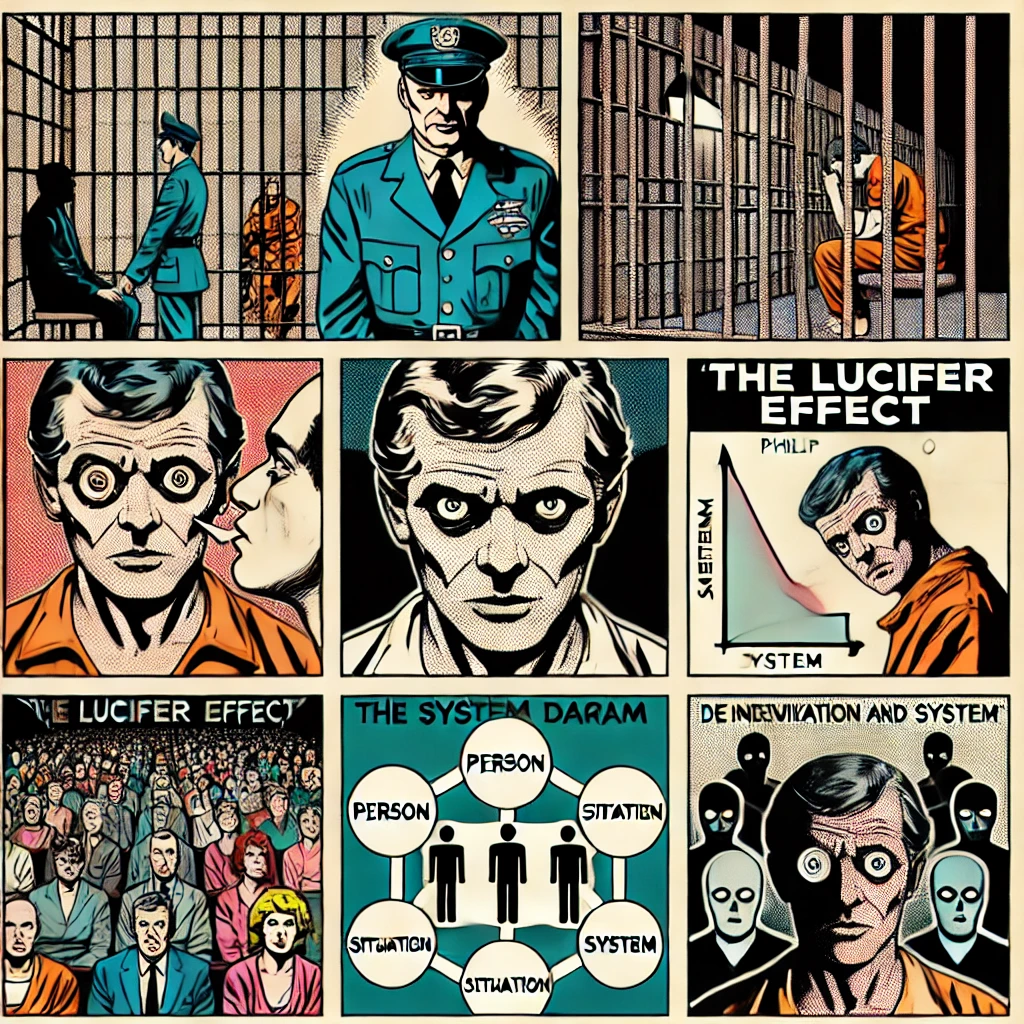Lucifer Effect How World Systems turn passive People Evil by Philip Zimbardo
How do ordinary, passive individuals become complicit in acts of cruelty and evil? Is it their nature – or the overwhelming force of the systems and environments they inhabit? In this hard-hitting lecture, Philip Zimbardo – creator of the infamous Stanford Prison Experiment – exposes how societal systems and situational power transform the passive into the malevolent.
Drawing on real-world events, psychological research, and his groundbreaking experiment, Zimbardo uncovers the chilling truth: systemic forces, unchecked authority, and moral disengagement have the power to corrupt anyone.
Discover how the machinery of control manipulates behavior. Question the illusion of morality and free will. See how the passive are coerced into enabling evil through authority and fear.
If you think you’re beyond the reach of such influence, think again. Zimbardo’s revelations are a wake-up call to the dangerous intersections of psychology, societal structures, and systemic oppression.
Philip Zimbardo’s “The Lucifer Effect: Understanding How Good People Turn Evil” delves into the psychological mechanisms that can lead ordinary individuals to commit heinous acts. Drawing from his renowned 1971 Stanford Prison Experiment (SPE), Zimbardo illustrates how situational and systemic factors can override personal morals, transforming passive individuals into perpetrators of evil.
The Stanford Prison Experiment: A Glimpse into Human Nature
In the SPE, Zimbardo assigned college students roles as either “guards” or “prisoners” within a simulated prison environment. The study, intended to last two weeks, was terminated after just six days due to the extreme and distressing behaviors exhibited. Guards became increasingly sadistic, employing psychological torture, while prisoners showed signs of severe emotional distress. This rapid descent into abusive dynamics highlighted the profound impact of situational forces on human behavior.
Situational and Systemic Influences
Zimbardo emphasizes that it’s not solely individual dispositions that lead to evil actions but also the environments and systems people operate within. He introduces a three-tiered framework to analyze behavior:
- Person: Individual characteristics and dispositions.
- Situation: Immediate environmental and social influences.
- System: Broader institutional and societal structures that shape situations.
This framework suggests that “bad barrels” (situations) and “bad barrel makers” (systems) can corrupt “good apples” (individuals).
Mechanisms Facilitating Evil
Several psychological mechanisms can lead individuals to partake in evil deeds:
- Dehumanization: Perceiving others as less than human makes it easier to justify harmful actions against them.
- Deindividuation: A sense of anonymity can diminish personal responsibility, leading individuals to act in ways they might not otherwise.
- Obedience to Authority: People may commit unethical acts when instructed by authority figures, as demonstrated in Stanley Milgram’s obedience experiments.
- Conformity to Group Norms: The pressure to align with group behaviors can lead individuals to participate in actions they might personally find reprehensible.
Real-World Implications: The Abu Ghraib Scandal
Zimbardo draws parallels between the SPE and the abuses at Abu Ghraib prison during the Iraq War. He argues that systemic issues, such as lack of oversight and dehumanizing environments, created conditions where ordinary soldiers committed acts of torture. This comparison underscores the importance of examining systemic and situational factors when addressing unethical behavior.
Promoting Ethical Behavior and Heroism
Understanding the factors that lead to evil actions also provides insights into fostering ethical behavior. Zimbardo advocates for:
- Ethical Vigilance: Encouraging individuals to be aware of situational pressures and to question unjust authority.
- Promoting Disobedience to Unjust Authority: Teaching individuals to critically assess directives and resist orders that conflict with moral principles.
- Cultivating Heroism: Encouraging proactive behaviors that challenge evil and promote social good.
Conclusion
“The Lucifer Effect” serves as a compelling exploration of how systemic and situational forces can lead passive individuals to commit evil acts. By understanding these dynamics, society can implement measures to create environments that promote ethical behavior and empower individuals to resist negative influences.
